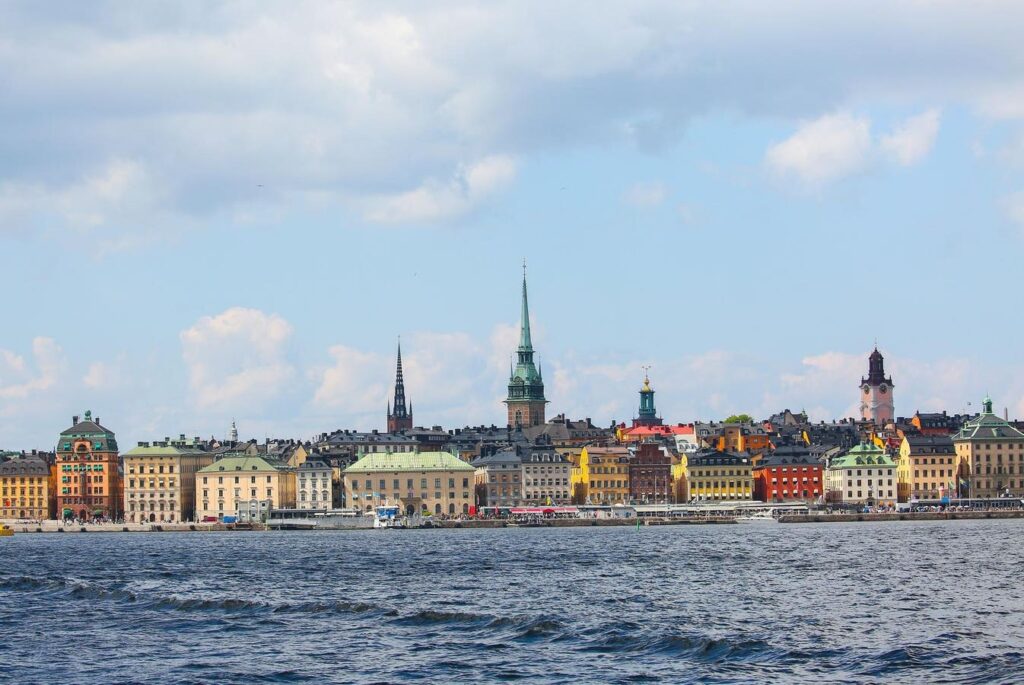The Old Town of Stockholm City, Sweden, on June 6, 2024. (Photo by Pradeep Dambarage/NurPhoto via … [+] Getty Images)
NurPhoto via Getty Images
The government of Sweden has announced a multi-million dollar aid package for developing countries. The package is explicitly linked to the goal of reducing irregular migration to Europe. It is designed to both improve conditions in countries of origin, thereby reducing incentives for people to leave, and improve those countries’ capacity to receive rejected asylum seekers from Sweden. The explicit linking by a government of irregular migration and development is an interesting development, and opens up further discussion on the relationship between the two.
“Today, the government presented a new strategy of 3 billion SEK (around $280 million) in aid funds over four years, with the aim of reducing irregular migration to Sweden,” announced Benjamin Dousa, Sweden’s minister for foreign trade and international development, on Twitter. “It is an important step in connecting aid with migration.”
For a government to link development aid so directly to controlling irregular migration is somewhat rare. While details are yet to be fully outlined, Dousa made clear that these development aid funds will be to at least some extent subject to conditions – presumably along the lines of Sweden’s expectations of cooperation on reducing migration. Typically, when governments talk about addressing the “root causes” of migration and aiding development in countries of origin, the language used is more subtle.
This announcement comes as European Union member states are pursuing more extensive strategies to try to reduce irregular arrivals to the continent. The most popular strategy at the moment is what’s known as ‘border externalization’ wherein third-countries, particularly in North and West Africa, are funded to either prevent people leaving their territory or intercept them on the way to Europe. There is also considerable attention on the related strategy of paying third-countries to receive asylum seekers to process their claims there, instead of in Europe, as seen with the Italy-Albania scheme and now-scrapped U.K.-Rwanda scheme.
As in many of these other European countries, immigration is a very salient topic in Swedish politics in recent years, with far-right anti-immigration parties leveraging concerns over the issue to electoral gain. In 2022’s general election, the far-right Sweden Democrats (SD) party secured enough votes to gain influence over the resulting minority government led by the center-right Moderate Party. SD have long campaigned on reducing irregular immigration and the government since 2022 has laid out several plans along those lines, including offering to pay immigrants up to $34,000 to leave the country voluntarily.
Sweden’s decision to link development aid directly to reducing irregular migration is likely to spark a lot of interest among migration experts and development economists. The relationship between economic development and emigration is hotly debated. On the one hand, it seems self-evident that the more stable a country is, and the more its citizens are able to pursue lives of safety, dignity and prosperity, the less incentivized they will be to leave. On the other hand, it has been observed that in some of the poorest countries – where people are so destitute they can’t afford even to flee – small bumps in development can actually mean an increase in people leaving.
Previous discussions of the so-called development-migration nexus tend to focus on these kinds of economic questions in countries of origin, and are somewhat neutral on the questions of governmental control and coercion. But it should be noted that, in the Swedish government’s announcement, it appears clear that the arrangement relies on securing developing countries’ cooperation in both receiving deportees and enhanced ‘border management’ in those countries. This hints towards an approach that has more in common with other EU member states’ ‘border externalization’ strategies than is obvious at first glance.
Source link : https://www.forbes.com/sites/freylindsay/2024/10/25/sweden-announces-development-aid-linked-to-irregular-migration-control/
Author :
Publish date : 2024-10-25 11:54:00
Copyright for syndicated content belongs to the linked Source.
